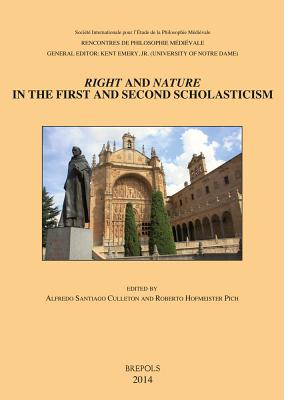
Right and Nature in the First and Second Scholasticism / Derecho Y Naturaleza En La Primera Y Segunda Escolastica: Acts of the Xviith Annual Colloquiu
Paperback
ISBN13: 9782503554587
Publisher: Brepols Publ
Published: Dec 31 2014
Pages: 476
Weight: 1.76
Height: 1.10 Width: 6.20 Depth: 9.10
Language: Spanish
Also in
Philosophy
Philosophy After Marx: 100 Years of Misreadings and the Normative Turn in Political Philosophy
Henning, Christoph
Paperback
Make Peace before the Sun Goes Down: The Long Encounter of Thomas Merton and His Abbot, James Fox
Lipsey, Roger
Paperback
Descartes: Meditations on First Philosophy: With Selections from the Objections and Replies
Descartes, Rene
Paperback
Meditations for Mortals: Four Weeks to Embrace Your Limitations and Make Time for What Counts
Burkeman, Oliver
Hardcover
The Daily Stoic: 366 Meditations on Wisdom, Perseverance, and the Art of Living
Holiday, Ryan
Hanselman, Stephen
Hardcover
The Boy, the Mole, the Fox and the Horse Fifth Anniversary Limited Edition: The Global Bestseller
Mackesy, Charlie
Hardcover
The Obstacle Is the Way Expanded 10th Anniversary Edition: The Timeless Art of Turning Trials Into Triumph
Holiday, Ryan
Hardcover
My Big TOE Awakening Discovery Inner Workings: The Complete My Big TOE Trilogy Unifying Philosophy, Physics and Metaphysics
Campbell, Thomas
Hardcover
The Ethical Slut, Third Edition: A Practical Guide to Polyamory, Open Relationships, and Other Freedoms in Sex and Love
Easton, Dossie
Hardy, Janet W.
Paperback
Outraged: Why We Fight about Morality and Politics and How to Find Common Ground
Gray, Kurt
Hardcover
The Word of Dog: What Our Canine Companions Can Teach Us about Living a Good Life
Rowlands, Mark
Hardcover
How to Think Like a Roman Emperor: The Stoic Philosophy of Marcus Aurelius
Robertson, Donald J.
Paperback
CSB She Reads Truth Bible, Rose Gold Leathertouch: Notetaking Space, Devotionals, Reading Plans, Easy-To-Read Font
Williams, Amanda Bible
Csb Bibles by Holman
Myers, Raechel
Hardcover
The Way, the Enemy, and the Key: A Boxed Set of the Obstacle Is the Way, Ego Is the Enemy & Stillness Is the Key
Holiday, Ryan
Hardcover
Other Minds: The Octopus, the Sea, and the Deep Origins of Consciousness
Godfrey-Smith, Peter
Paperback
How to Think Like Socrates: Ancient Philosophy as a Way of Life in the Modern World
Robertson, Donald J.
Hardcover
Self-Reliance and Nature: The Complete First and Second Series of Emerson's Essays
Emerson, Ralph Waldo
Hardcover
Hospicing Modernity: Facing Humanity's Wrongs and the Implications for Social Activism
Machado de Oliveira, Vanessa
Paperback
My Big TOE Awakening Discovery Inner Workings: The Complete My Big TOE Trilogy Unifying Philosophy, Physics, and Metaphysics
Campbell, Thomas
Paperback
Art of Living: The Classical Mannual on Virtue, Happiness, and Effectiveness
Lebell, Sharon
Epictetus
Paperback
The Kemetic Tree of Life Ancient Egyptian Metaphysics and Cosmology for Higher Consciousness
Ashby, Muata
Paperback
La Disciplina Marcará Tu Destino / Discipline Is Destiny: The Power of Self-Cont Rol
Holiday, Ryan
Paperback
Consolations: The Solace, Nourishment and Underlying Meaning of Everyday Words
Whyte, David
Paperback
Beyond Stoicism: A Guide to the Good Life with Stoics, Skeptics, Epicureans, and Other Ancient Philosophers
Lopez, Gregory
Pigliucci, Massimo
Alexander Kunz, Meredith
Paperback
American Leviathan: The Birth of the Administrative State and Progressive Authoritarianism
Ryun, Ned
Paperback
The Dictator's Handbook: Why Bad Behavior Is Almost Always Good Politics
Smith, Alastair
Bueno de Mesquita, Bruce
Paperback


 Sign-In
Sign-In Cart
Cart